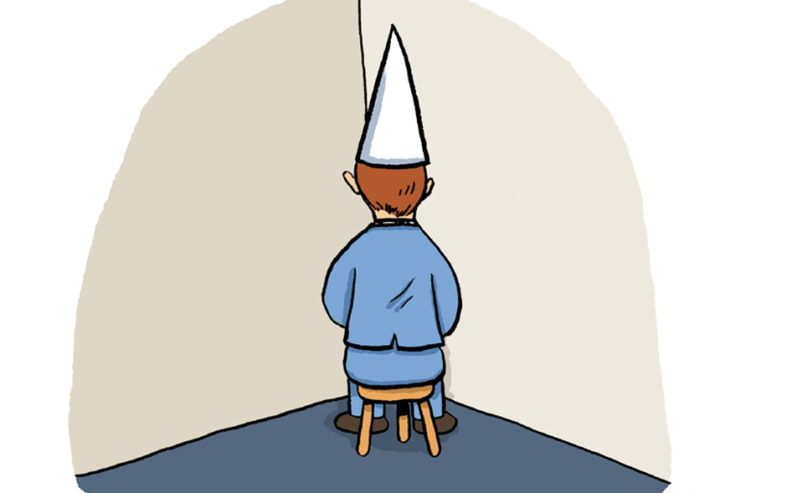By Jan Carstens
In 1984 my husband and I got married and decided to spend three weeks in Europe for our honeymoon. We were young and adventurous (and in retrospect, maybe a little stupid), so we decided to book flights but not lodging—we had no idea what countries/cities we were going to visit—except for our very first night in Amsterdam.
Amsterdam did not impress either of us. The streets were not clean, we saw multiple rats, and whenever we ordered one item at a bakery, we got two (only those who have been to Europe and pointed into a bakery case will understand why that is true). Fast-forward almost 10 years and I found myself accepting a consulting assignment in Europe for a one- to three-year period. I was initially scheduled to be stationed in Amsterdam, so in late 1993 my husband and I went looking for an apartment.
Anyone who knows me knows how much I now love Amsterdam. No, it is not the access to legal marijuana that I love. I love the people, the culture, the food, the bikes, the canal houses, the antiques, and virtually everything about the city—including how clean the city has become. But what if I did want to indulge with a joint? Would that action be considered to be bad conduct? Would I be committing an act that reflects adversely on the actuarial profession if I were to enter a coffee shop, buy a joint, and smoke it on a park bench? The activity is not illegal in Amsterdam—at least it was not illegal the last time I visited.
The Code of Professional Conduct extends beyond activities performed in an actuarial capacity. Precept 1 of the Code of Professional Conduct states “An Actuary shall act honestly, with integrity and competence, and in a manner to fulfill the profession’s responsibility to the public and to uphold the reputation of the actuarial profession.” This statement is very broad and is not limited to activities performed in an actuarial capacity. Annotation 1-4 further states “An Actuary shall not engage in any professional conduct involving dishonesty, fraud, deceit, or misrepresentation or commit any act that reflects adversely on the actuarial profession.” This statement is also broad and not limited to activities performed in an actuarial capacity because it states that an actuary shall not commit any act that reflects adversely on the actuarial profession. For this article, I am going to refer to violations of Precept 1 when an actuary is not acting in an actuarial capacity as “bad conduct.” We could all come up with a laundry list of major activities that would be considered bad conduct. That list would most certainly include any criminal activity such as murder, aggravated assault, fraud, or embezzlement; harassment or discriminatory practices; emotional, psychological, or physical violence or abuse; and lies and deception.
The Actuarial Board for Counseling and Discipline (ABCD) rarely addresses cases in which only bad conduct is at issue, but it does happen on occasion. A summary description of alleged violations associated with 2016 ABCD inquiries appears in the ABCD’s 2016 Annual Report. While detailed information cannot be released about any of these inquiries, the descriptions clearly indicate that there have been allegations of bad conduct in some instances. Not all of these allegations result in a recommendation of discipline from the ABCD, but what happens when the ABCD determines that an allegation of bad conduct has merit? The ABCD may recommend discipline to the appropriate member organization(s). If the member organization(s) agree, discipline will be in the form of private reprimand, public reprimand, suspension, or expulsion.
I reviewed information regarding historic disciplinary determinations from member organizations that is available on the member organizations’ websites and developed the following selected list of determinations that are clearly related to bad conduct:
Intentionally or recklessly submitting or causing to be submitted false, inaccurate, and/or deceptive invoices.
Embezzling or stealing money.
Sending inappropriate email transmissions of a harassing nature or otherwise engaging in harassment.
Possession and distribution of certain materials in violation of federal law.
Being found guilty of felony charges.
Securities fraud related to various transactions.
We all know the difference between “major” activities regarding right and wrong, but what about other, somewhat minor, events? What if an actuary always exceeds the speed limit when driving? What if an actuary has a tendency to drink alcohol to excess every night? What if an actuary receives an extra $20 in change at the grocery store and doesn’t return it? Context is everything, and there is no definitive answer to these questions without knowing all the facts and circumstances. But as long as an actuary follows Precept 1 and acts honestly, with integrity and competence, and in a manner to uphold the reputation of the actuarial profession—regardless of whether the actuary is performing actuarial services at the time—the actuary should be fine.
Reading the Code once in a while is just good actuarial practice. In my role as an ABCD member, I read through the Code frequently. I will close with another Amsterdam example based on personal experience. I took a trip with three other women recently, and we were sitting in a bar. One of my companions really liked a beer glass that was brought to our table, so we had a bit of discussion about the glass. Our discussion was overheard by a group at the adjacent table, and one from this group suggested we just pocket the beer glass because “it would not be missed.” I must admit that I wasn’t really thinking about upholding the reputation of the actuarial profession at the time, but the Code must have been in the back of my mind—the thought of stealing a beer glass was not appealing. I chose instead to ask the bar attendant if we could buy the beer glass, and the bar attendant said, “Oh, you can just have it.”
JAN CARSTENS, MAAA, FSA, FCA, is a member of the Actuarial Board for Counseling and Discipline.





